Holy Week: Celebrating Jesus’ Profound Love
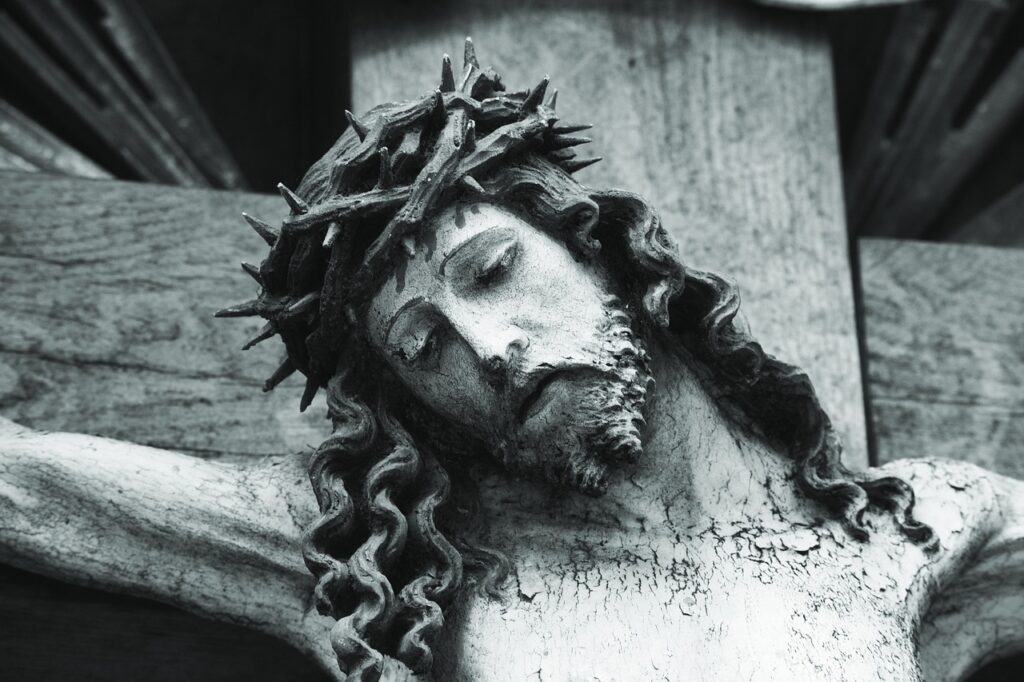
What do we commemorate during Holy Week? Several significant events. On Holy Thursday we commemorate the washing of the feet and the giving of the Eucharist. On Good Friday we remember Jesus’ agony in the garden, his frightening arrest, his torture at the hands of Roman soldiers, the unjust trial, the decisive death sentence, the betrayal of his disciples, the awful crucifixion, and the hasty burial. It’s easy to be overwhelmed by the magnitude of Jesus’ sufferings and pains–so much so, we cry out, “Look how much he suffered!” But years ago in a scripture class, I remember how our professor, Fr. Demetirus Dumm, OSB, suggested a more important way to look at Holy Week. While being rightfully aghast at Jesus’ horrific sufferings, we must also cry out, “Look how much he loved!”
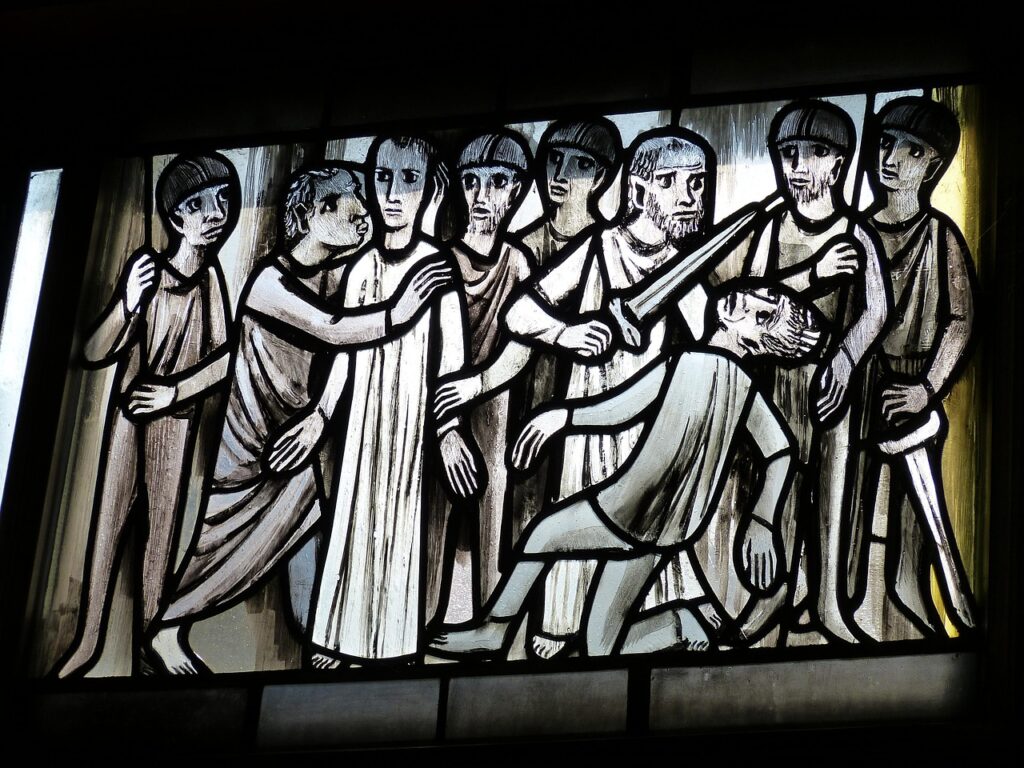
For love lies at the heart of Holy Week. It is the key to all the events we commemorate. And what is the basis to all real loving? In a word, it is our vulnerability. Vulnerability, I read recently, means we are all wound-able. We have limitations, we lack self-sufficiency. It means we need others to survive. We experience this need everyday! How many other people does it take to provide us with safe water and food, shelter, roads and bridges, safe air travel? We need healthcare workers, researchers, just laws, and a fair legal system. We need elected government officials who serve with compassion for all–especially the most vulnerable among us. And the list goes on and on. But we need others not only to survive, but also to flourish–so we especially need our family and friends.
By ackowledging our vulerability and need, we learn how to open ourselves to love. But loving is a great risk. Yes, it means opening ourselves to possible joys beyond measure: finding our “soul mate,” bringing a child into the world, finding our life’s passion and work. But opening ourselves to love also means opening ourselves to possible pains beyond measuring: rejection, betrayal, failure, the agonizing loss of a loved one. In his book (1960) entitled The Four Loves, British writer C. S. Lewis warns:

“To love at all is to be vulnerable. Love anything, and your heart will certainly be wrung and possibly broken. If you want to make sure of keeping it intact, you must give your heart to no one, not even an animal. Wrap it carefully round with hobbies and little luxuries; avoid all entanglements; lock it up safe in the casket or coffin of your selfishness. But in that casket–safe, dark, motionless, airless– it will change. It will not be broken; it will become unbreakable, impenetrable, irredeemable.”
In Jesus, we have a God well acquainted with our struggles and agonies. Tish Harrison Warren, an Anglican priest writes: “Jesus experienced death. He knew what it was like to die…. He knows the feeling of his cells being starved of oxygen, of cardiac arrest and suffocation…. There is no darkness into which he has not descended. He knows the taste and texture of everything I most fear.” (Prayer in the Night).
This week, as we celebrate the mysteries of Holy Week, we are not merely recalling something that happened over 2,000 years ago. We are remembering what is happening in our current times. Just look at our headlines! What breaks your heart in today’s headlines or in your own personal life? Thankfully, Jesus continues to nourish us with the Eucharist to help us face the real challenges to loving that we see and experience every day. He invites us, after his example, to lovingly wash the feet of others–in whatever form that washing takes: feeding the hungry (whether a stranger in a shelter or your family in your own kitchen), clothing the naked (donating clothes or getting the grandkids dressed), working for greater justice (whether volunteering directly or writing to your congresspersons), accompanying one who is afraid, praying for those who are in our headlines–both victim and perpetrator and their families, really listening to another, bringing joy to someone in need of encouragment, bearing patiently our own losses and letting go’s, and entrusting everyone and everything into the arms of our all-knowing and all-loving God.
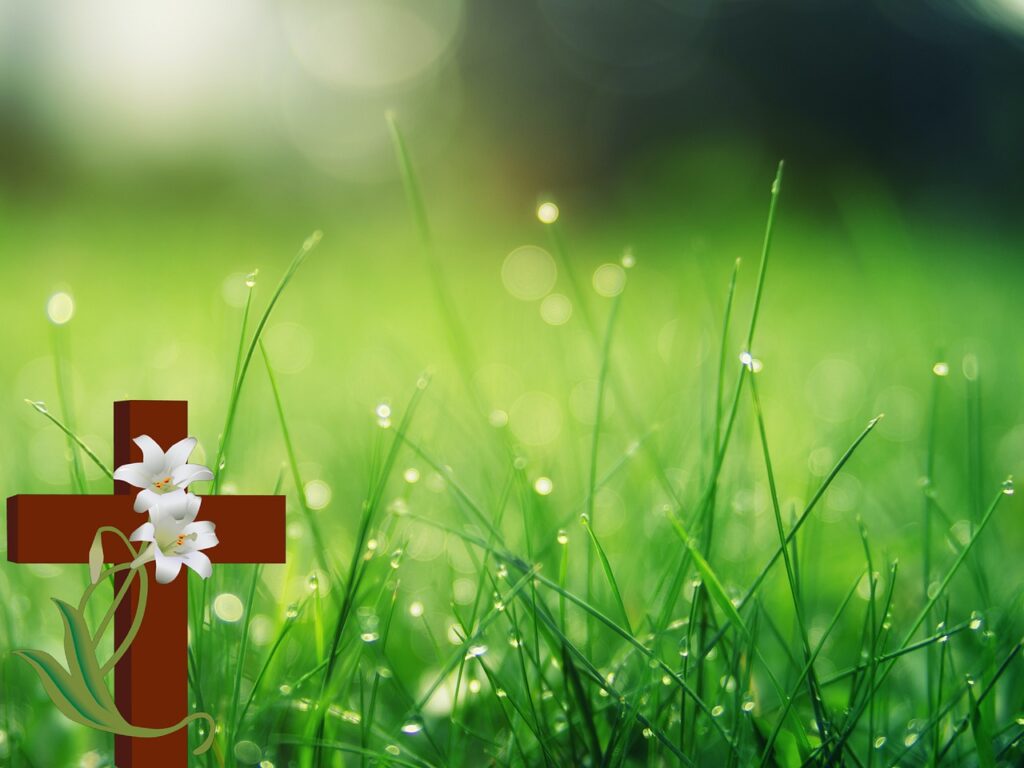
For reflection:
Did any words touch your heart in today’s reflection? Do you know why?
Recall a time when you experienced your vulnerability in a small way? in a dramatic way? What affect did these experiences have on you?
When have you had your heart broken? Did anything positive emerge from that experience?
What are some ways Jesus showed his love during the “first Holy Week?”
What or who helps you to trust in an all-knowing and all-loving God?
Our song today is Deborah Govenor’s beautiful “Remember Me.” The first two verses speak of the Last Supper and Jesus’ agony in the Garden and death on the cross. The third stanza speaks of our participation in Jesus’ sacrifice and selfless loving…
I wlecome your comments below–on the reflection, the questions, the photos, the video…
Poetry for April
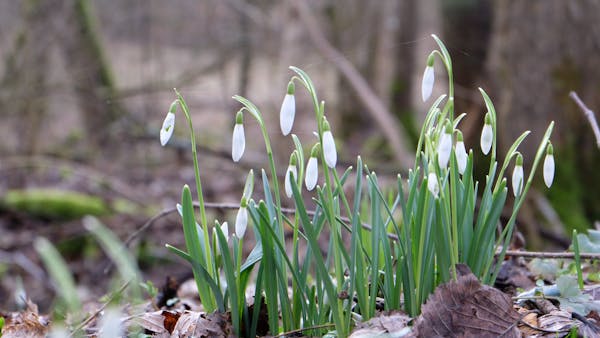
April is national poetry month. In honor of this ancient and beautiful literary form, I am offering three short poems for your enjoyment and pondering. I suggest you read each poem slowly and aloud.
The first poem is by someone most of you know: John Hopkins a regular reader and responder on this blog. (I was talking to two of my cousins recently. Both are readers of my blog. One said, “I always like to read what John Hopkins writes. He uses few words to same some really good things!) John, a high school English teacher, just published his third book of poetry called, With Caught Rain (available on Amazon). Here is the first poem in the book called “Sometimes.” What I love about this poem is how it captures a moment of true happiness–not the extraordinary and showy kind. But the ordinary, simple, daily happiness of having a cat, noticing spring outside the window, having your hands in sudsy water, and hearing your wife singing upstairs while doing some housework.
“Sometimes” – by John Hopkins
Sometimes,
happiness is sudden,
like when the cat decides to circle curl herself
onto your lap on a cold,
rainy, April afternoon
and then stays
even when you prop your book on her fur.

It was on such a day
I heard you singing.
At the sink, my hands
enscounced in suds,
moving the sponge over plates,
the window showing the world greening
from the ground up
I heard you upstairs:
moving things, vacuuming, opening and closing,
singing, now and then, snippets of songs from the radio.
Later, you would tell me the cat,
serving as your assistant,
deemed it necessary,
to examine every drawer
you opened.

Have you ever had a moment when you’re doing ordinary, daily tasks, and suddenly happiness shows up? If so, what were doing? And how did happiness come?
Were there any words of phrases in this poem that you really liked or identified with?
Our second poem is a haiku by Robert Siegel, an American cotemporary poet. A haiku (as you may remember from your days in elementary or high school) is a three line poem 5 syllables in the first line, 7 in the second, and 5 in the third line. Sometimes the number of syllables varies a little.

Yellow flames flutter
about the feeder:
a Pentecost of finches.
Any comments about this tiny poem?
April in the United States is the beginning of baseball season. And baseball is my favorite sport. The game has often been used as a metaphor for life. Baseball involves making “sacrifice” plays, being thrown a lot of curve balls, and getting home safely as the ultimate goal. To me, a double play can be as beautiful as a well-coordinated dance move. A diving catch in the outfield blends perfect timing with total commitment. And a 420-foot home run is the marriage of superior hand-eye coordination with brute power. Here is my poem about the shortstop–or is it really a poem about how to live our lives?

“The Shortstop”
Live your life like a good shortstop.
Dare to stand in the between spaces of life’s active infield.
Plant yourself firmly yet lightly on the balls of your feet.
Crouch forward slightly, ready to spring in any direction:
left, right, forward, back.
Build arm strength, work on your range.
Master these essential skills:
take an angle on the ball, get in front of it,
block it with your chest if need be.
A temporary bruise is a small price to pay
for preventing the opposition from scoring.

Embrace the fact that more balls are hit to you than to any other position.
At every moment in the game you might get
a sharp grounder, a crazy bouncer, a stinging line drive,
a popup a mile high–
all from Fortune’s bat.
Be poised to glove whatever comes your way
and humbly make the play.
Do any words or phrases in this poem describe where you have been in life in the past–or where you are now?
What other ways is the game of baseball a metaphor for life?
Do you have a favorite sport to watch or to play? What does this sport teach you about life?
PS: I will be giving a retreat at the Assisi Spirituality Center in Rochester, MN, May 15-18, and May 18-21. It is an in-person and zoom retreat. You can sign up for either part of the retreat or both parts. See their website for details: www.rochesterfranciscan.org or call: 507-282-7441. I hope to see a few of you there–either in person or via zoom!
Most songs are really poems set to music. With that in mind, here is a fourth “poem” called “Compassion Walks the City Streets.” The original poem was written by Sister Genevieve Glen, OSB. It was set to music by Justin Wedgewood. The song is a beautiful personification of Compassion. We here at our SND Center recently learned this song for Lent…
I invite you to write a comment below about the poems, the pictures, or the song:
Can Curiosity Be a Virtue? Can Questions Be a Grace?
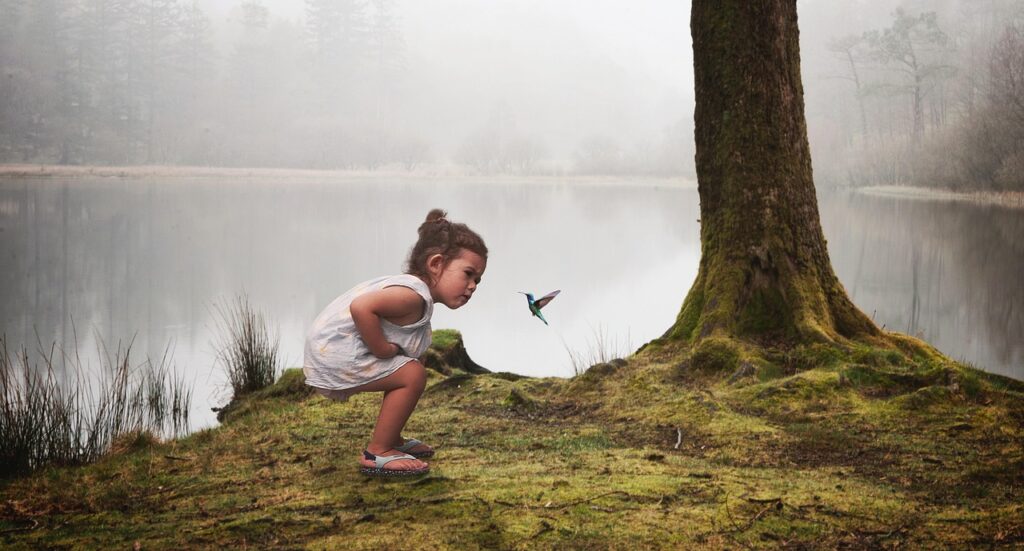
As a little girl, I was curious about many things. As a result, I was always asking questions. Lucky for me, as the youngest in a family of six, I lived with five older people who were a “fount of knowledge” for me: my three older siblings and my parents.
Early on, though, I learned siblings couldn’t always be trusted. Although they often shared their vast knowledge with me, my siblings occasionally tricked me. One day, for example, I refused to eat shredded wheat at breakfast, because my siblings had told me it was burnt string. Mom had to intervene on that one. But both of my parents patiently answered my questions–especially my dad. As far as I was concerned, Dad knew just about everything about everything: science, math, animals, agriculture, mechanics, history. I distinctly remember sitting in the back seat of our car one day going somewhere with my family. Dad was driving. At one point he put on his blinker–which made me ask, “Dad, how do car blinkers work?” Right away he answered my question with something like, “Lights need electricity to go on. The car battery gives the electricity. If the electricity is stopped for a few seconds, the light goes off. The blinker stops and starts the electricity a few times, and the light blinks on and off.” It was enough to satisfy my curiosity.

When I started school, I often asked questions. I had to answer questions too. Later, as a teacher, I was always asking my students questions. And I had to answer their questions too. In fact, I used to welcome my students’ questions–so much so that my students accused me of getting more excited when they asked a question than when they answered one! Yes, I was guilty of that “crime.”
All of these memories drew me to reflect on curiosty–which prompts many of our questions. I have come to believe that curiosity can be a virtue, and questions can be a grace. Even the Bible supports this view. Remember Moses? It was his curiosity about the burning bush that prompted him to leave his sheep and go over to investigate the wonder-filled bush more closely. And when he did WOW! HOLY SMOKES! GOODNESS GRACIOUS! Moses encountered the Living God!

Jesus was curious too. As a twelve-year-old boy he stayed behind in the temple with the wise elders, mostly asking them questions–not how do car blinkers work, but maybe: how does prayer work?… how does scripture work?… how does God work? He probably offered a few answers of his own. When he went back home with his parents, scripture says he “advanced in wisdom.” That implies he retained his curiosity and kept posing questions–even of God. As an adult, Jesus was amazingly curious about many things. This curiosity led to his extensive knowledge in a variety of areas–agriculture, carpentry, baking, wine making, sewing, construction, animals (think chickens, camels, sheep), family relationships, poverty and riches, parties and joys, death and grief, and injustices and goodness of all kinds. Most importantly it gave him wisdom and knowledge of what it means to be a human being AND who God is.

Let us take a few minutes to reflect on our curiosity and our questions today. We can begin by asking ourselves: What am I curious about? What questions do I harbor in my heart? What are some of the BIG questions I have FOR God… or ABOUT God?
We will never have all our questions answered, of course. That’s why I always appreciated what the poet Rainer Maria Rilke wrote:
Be patient with all that is unsolved in your life
and try to love the questions themselves,
like locked rooms and like books that are now written in a very foreign language.
Live the questions now.
Perhaps you will then gradually, without noticing it,
live along some distant day into the answer.
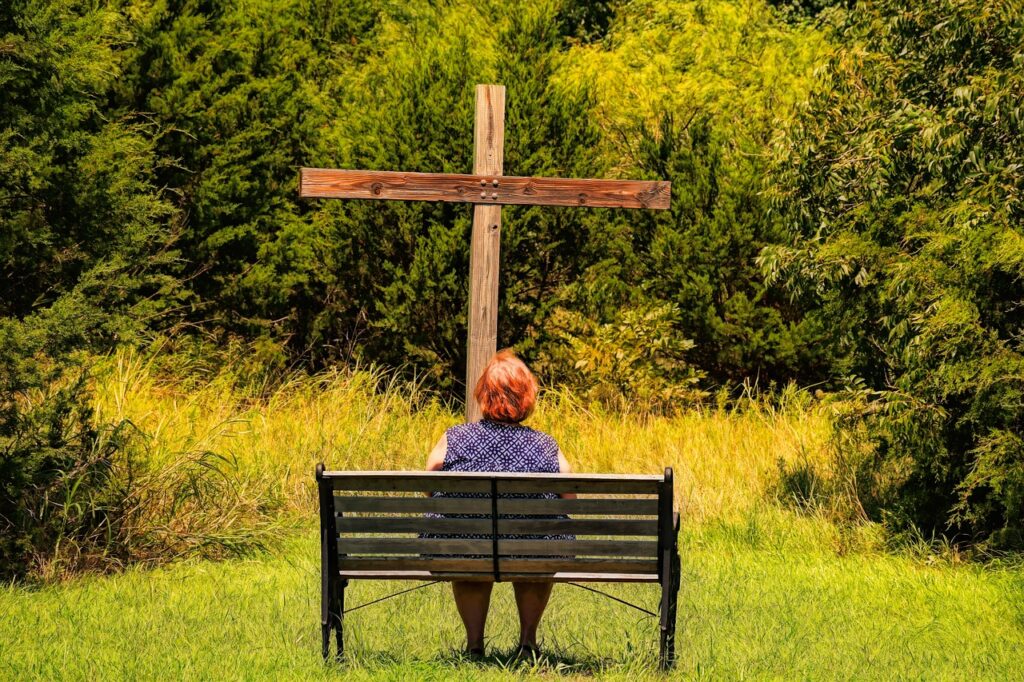
For reflection:
On a scale of 1-10, 1 meaning almost none and 10 meaning VERY much, how much curiosity do you have?
At this time in your life, what are you curious about? What questions are you asking?
Has a question ever been a grace for you? If so how?
What are some of the BIG questions you have ABOUT God and/or FOR God?
PS: Thank you for your prayers for the zoom retreat I was privileged to lead for the Mercy Sisters in Buffalo. And I thank those Sisters for warmly welcoming me into their dining room each day. I especially thank my contact person, Sister Peggy, for all the work she did in organizing us and running the technology. Peggy is a self-described “belts and suspenders” kind of gal! I enjoyed working with her!
This is a song by a young singer/songwriter from Kampala, Uganda named Suubi Namubiru who calls herself “a child of God.” As a little girl, she was a ballerina. But then someone in her church asked her to audition for singing in church. She did. When you hear her sing, you will be glad that she said “yes” to that request. This song, “All Knowing God,” is about being in the wilderness, not a pleasant place to be. We may find ourselves in the wilderness right now. But the words that struck me in this song were: “God, you are enough for me… Life will grow in this place of thorns and briars… He who promised is faithful.” With mesmerizing simplicity, clarity, and poetry of expression, the song exudes hope, peace, and trust in our all-knowing God. I’d love to know what you think of it…
I invite you to leave a comment below… about the reflection itself… the questions… the pictures… or the video…
Praying with Someone Else’s Words
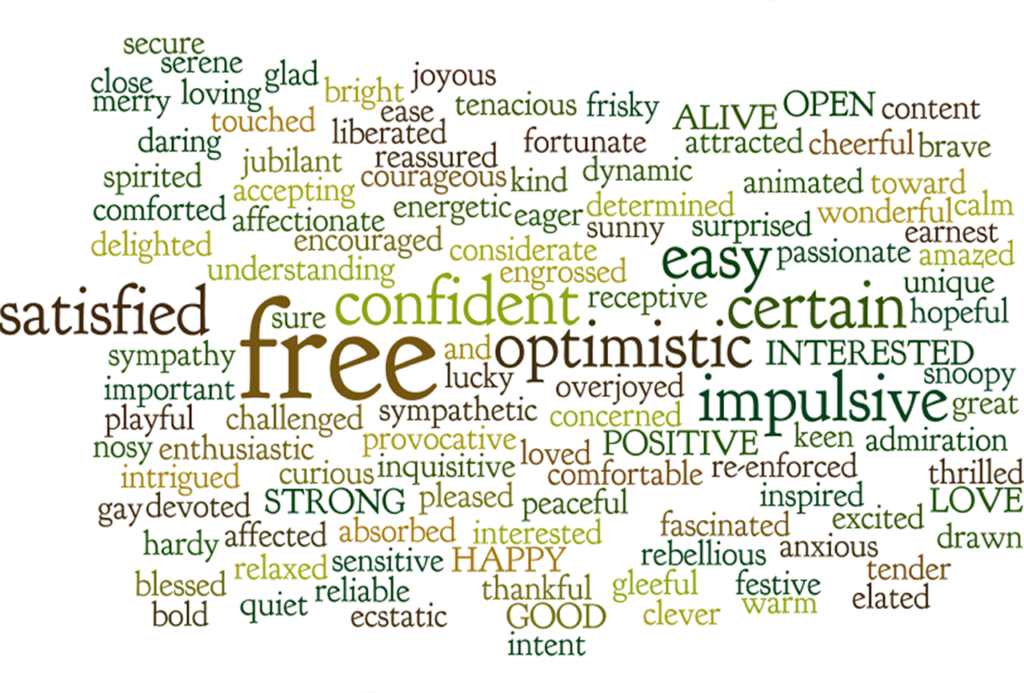
When we pray, should we use our own words or someone else’s words? I believe the short answer is both. There are times we use own words and times when we use the words of others. In addition, there are times when we pray with no words–as when we sit in silence and awe, or when our tears or even dance become our prayer. But in this reflection, we will explore some of the values in praying with someone else’s words.
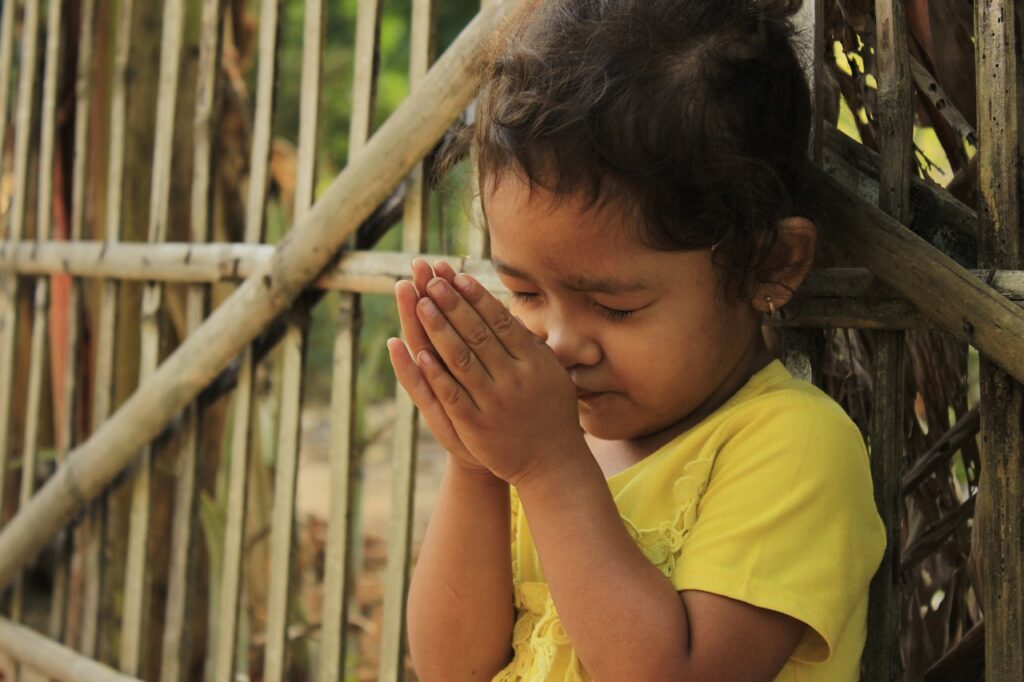
As little children, we might have been taught to pray to God in our own words: “God bless Mommy and Daddy and Fido… God, make Grandma not sick anymore… Jesus, don’t let it rain on my birthday party tomorrow.” But probably we were also taught some traditional “already-made” prayers–like the Our Father, given to us by Jesus himself. Maybe we learned other prayers as well: the Hail Mary, “Now I lay me down to sleep,” or “Angel of God, my guardian dear.”
When we pray at Mass, we are using mostly the words of others. At most liturgies, only the offertory petitions are not prescribed. At the Sunday Mass, even those petitions may be written by someone else. At our liturgies here at our SND center, several sisters take turns writing our petitions. The petitions are excellent–expressing in beautiful language the needs of our local, national, and world communities. I find them very prayerful. (special thanks to those Sisters!) At weekday Masses in some parishes, the congregtion is invited to add their own petitions spontaneously. From various parts of the church, you will hear petitions like, “For the healing for my father… for people suffering from addiction… for world peace.”
So what is the value of praying with someone else’s words? Here are four values:
Formal prayers can unite us to others. There’s a power in praying along with others in the words we all read together or know by heart–for example, praying the Our Father at Mass. It is a great sign that, despite our many differences (just look around the congregation!), we are united in our faith. So too, when we pray the “Lamb of God” together, we are joined with other believers–not only those at our particular Mass, but also those countless individuals all over the world who are praying the same words, each in their own language.
Traditional prayers unite us with Christians who came before us. These days there is a keen interest in ancestry. Reciting traditional prayers unites us with our ancestors in the faith. The Hail Mary, for example, is a prayer from the 6th century. Every time we utter this prayer we are united with our fellow believers from the past fifteen centuries. Fifteen! There’s a strength and consolation that comes with that knowledge. We are not alone in our faith. Praying the Hail Mary helped believers in the past to face their struggles and pains. That same prayer can help us face the challenges of our own times.

To constantly come up with our own words in prayer can be exhausting. Years ago, I lived in a large community of about 50 sisters where we took turns planning our daily liturgies. One day this note appeared on the chapel door for every sister to read as she came for Mass. “Today’s petitions are spontaneous. Please be prepared.” I laughed! I thought, “Even our spontaneity must be prepared?” But the sister who wrote the note was acknowledging that coming up with a petition on the spot, expressing it in good, clear English, and then reciting it aloud–all of that takes energy. Stanley Hauerwas, an advocate for praying other people’s prayers, writes that our religion “is constantly under the burden of re-inventing the wheel and you just get tired.” When we go to Mass or recite the Divine Office, we don’t have to start from scratch. The prayers are there. So too are the prescribed scripture readings and psalms. He concludes, “There’s much to be said for Christianity as repetition.”
Other people’s prayers can expand the width and depth of our own prayer. When we’re searching for a birthday card for a loved one, we look for a card that comes close to saying what we want to say. We rejoice when we find one. But sometimes we are lucky enough to find a card that says BETTER what we’re trying to say. By sending that card, we make the words on that card our own.
In her book, Prayer in the Night, Tish Harrison Warren, an Anglican priest writes, “Inherited prayers and practices of the church tether us to belief, far more securely than our own vacillating perspective or self-expression… When my strength waned and my words ran dry, I needed to fall into a way of belief that carried me. I needed other people’s prayers.” And lucky us! Often we can make the words of others our own!
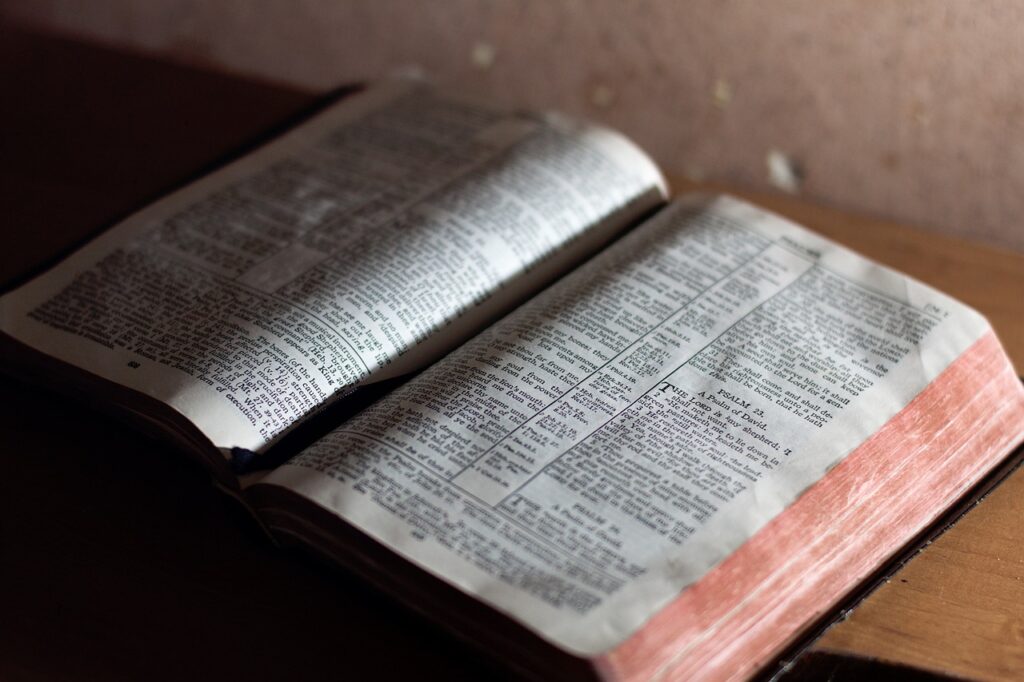
I’ll conclude this reflection with a few short prayers of others that I particularly liked:
Here’s a prayer-poem by Christina Rossetti (1830-1894):
Lord, purge our eyes to see / Within the seed a tree.
Within the glowing egg a bird/ within the shroud a butterfly:
Till taught by such, we see / Beyond all creatures Thee:
And hearken for Thy tender word, and hear it, “Fear not: it is I.”
From Gregory of Nazianzus (325-390):
The morning breaks, I place my hand in Thine,
My God, ’tis Thine to lead, to follow mine.
“Awaken Us” – from Catholic Relief Services (contemporary):
Lord of all hopefulness, awaken us.
Show us the meaning in our toil / That we may ever rejoice in the promise of the seeds we sow.
Lord of all hospitality, awaken us. / Show us the refuge of eagles’ wings
That we may always be people of shelter in times of storm.
Lord of all freedom, awaken us.
Show us the courage that called our forefathers out of bondage.
That we may always stand with the bound and the oppressed, and be their companions.
Lord of all charity, awaken us.
Teach us of the unending return on our sacrifice / That we may rejoice more fully in our giving. Amen.
For reflection:
Do you use your own words in prayer, the words of others, or both? What determines which words you use?
Have you ever experienced strength or connectedness as you prayed aloud the same prayer with others?
Do you have any prayers composed by others that you like to say often? Which prayer(s) and why? Would you like to share the titles of those prayers with us below and/or a few words from the prayer?
PS #1: I ask your prayers for a zoom retreat I am leading this week for the Sisters of Mercy in Buffalo, NY. The retreat focuses on hope and runs from Sunday evening to Friday about noon. I will let the retreatants know you are praying for them. Thank you very much!
PS #2: Some have asked where I’ll be giving retreats that are open to the public. I’ll be in Rochester, MN May 15-21 leading a retreat at Assisi Heights Spirituality Center . This retreat is both in-person and livestreamed on Zoom. In addition, it is divided into two parts: Part I is Thursday May 15 evening to Sunday May18 noon; Part II is May 18 evening to Wednesday May 21 noon. There are two conferences per day: 9:00 AM and 3:00 PM (Central Time). You can sign up for either part or both parts of the retreat. Check the Retreat Center’s website for details: www.rochesterfranciscan.org. Click “News” and then “2025 retreats.” Or call: 507-282-7441.
July 13-20, 2026 I will be giving an in-person retreat at Our Lady of the Snows Shrine in Belleville, IL located about 18 miles east of St. Louis. You can check out their website, but details about my retreat probably won’t be listed until after January 1, 2026: [email protected].
Our video today is a beautiful prayer set to music. The poem was written by St. John Henry Newman (1801-1890), “Lead, Kindly Light.” The singer is Audrey Assad. I’ve used this song before, but it is one of my favorite prayer/poem/songs. And, since I write this blog, I get to pick the songs!… I hope it moves your heart as it moves mine…
I invite you to write a comment below–either to initiate the conversation or add to it! Many thanks! (PS: I do welcome suggestions for songs and videos…)
Bearing the Yoke of Jesus

As many of you know, I write occasionally for Give Us This Day, a wonderful and inspiring monthly booklet published by Liturgical Press. Each issue contains the daily Mass readings complete with reflections by authors both ancient and contemporary. Each reflection is limited to 250 words. Today I’m sharing my reflection for Dec. 13, 2023 on Mt. 11: 28-30:
Jesus said, “Come to me, all you who labor and are burdened, and I will give you rest. Take my yoke upon you and learn from me, for I am meek and humble of heart; and you will find rest for yourselves. For my yoke is easy, and my burden is light.”
Jesus knew a lot about yokes. Joseph probably made yokes as part of his carpentry work. If so, he would have taught Jesus the art of making good yokes. Select sturdy wood, but not too heavy as to weigh the animal down. Then fit the yoke to each animal. This means measuring the animal’s shoulders, neck, and height from head to hoof. A good yoke eases the animal’s burden. Double yokes enable two animals to work side by side as a team.

Jesus knew about yokes in scripture too. He knew the yoke was a frequent symbol of bondage. His listeners would have known that too. But when Jesus speaks of the yoke in today’s gospel, he gives this old metaphor a new twist: “Take my yoke upon you and learn from me… for my yoke is easy and my burden is light.” My yoke, he says. Take it willingly. My yoke is not a yoke of bondage. It is a yoke of bonding. I will teach you how to bear it. In fact, I will bear the yoke with you.”
Recently, a catechist in Chile told this story. She was teaching a small group of Christians in a rural area. At one point she asked them, “What is your favorite image of God?” One farmer said, “For me, God is the other oxen. We talk to each other every day as we plow the field. The yoke is light when I carry it with my God.”
What burdens are you carrying right now? Are you carrying them with Jesus by your side?

For reflection:
Did anything stand out for you in this reflection. If so, what and why?
Do you talk to God every day–and even throughout your day?
What is your favorite image of God? Why?
If you knew nothing else about Jesus except these words above, what are some of the things you might conclude about the kind of person he was?
PS: International Women’s Month is celebrated in March in the U.S., U.K., and Australia. In Canada it’s celebrated in October. The photo and quote below are posted here in honor of this month’s celebration.

Our video is “Come unto Jesus” by Laura Story, Jordan Kauflin, and Keith and Kristyn Getty. I loved the lyrics of this song, fashioned from Jesus’ own words. And I also loved the stunning video in the background… Toward the end of the song, notice especially the tiny people walking up the giant hill…
Once again I invite you to add a comment below–about the reflection itself, the photos, or the song… or you can respond to someone else’s comment…



